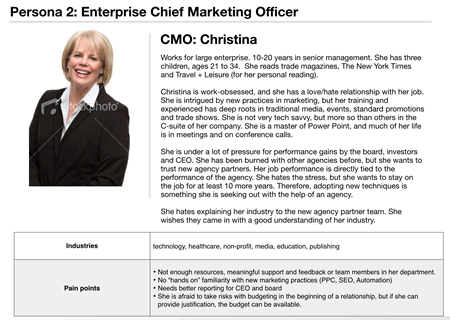
Websites play a vital role in business today. For most companies, websites are the primary representation of a brand and their top lead generation engine. A website may live at the center of most marketing efforts, including top-of-the-funnel demand generation, lead generation, sales enablement, customer service, press and media relations, employee nurturing, and partnerships.
![]()
Planning stage: developing a web strategy
During the planning stage, it is helpful to develop an initial understanding of your buyer personas, marketing research, your own value proposition, and influencers and establish the right analytics to measure and test your premises. An untested strategy is basically worthless. Testing, data-driven decision-making, experimentation, and iteration are key to building a solid business strategy for websites. Assume less and measure more.

Digital marketing plan fundamentals
An inbound strategy is vital
Remember, websites are inbound marketing engines--not expensive brochures. Websites, whether acknowledged or not, maybe your more important salesperson, and on average, they touch more relationships than your best sales team.
"Websites with 51 to 100 pages generate 48% more traffic than websites with 1 to 50 pages." – Inbound Marketing Statistics

Inbound or outbound marketing for gaining leads?
Inbound has proven far more cost-effective for lead generation. Additionally, a strong foundation in inbound marketing can help a brand not just generate leads but also develop sales opportunities from those leads.
Why use inbound marketing?
Outbound Marketing vs. Inbound Marketing – Which is Better?
Defining the right metrics and goals.
The right metrics for your website have everything to do with your core business goals--generating revenue, improving nurturing rates, closing deals, gaining partnerships, or improving churn. Here are a couple of common (high-level) website metrics that can generally improve your organization's overall marketing outcomes.

Common web metrics:
Defining website content and information architecture.
Many organizations focus too heavily on their homepage and ignore the rest of the website. In fact, too many organizations focus more on whether to have a homepage slider, and they ignore real, meaningful web strategies. Homepages are becoming less and less important.
"It’s not just The Times. The entire digital media industry is seeing a big shift in behavior. Reader visits to home pages are declining while traffic from social media is rising." - Source: BuzzFeed
Build a plan that examines landing pages, blog content, your overall content strategy, top attribution pages, worst bounce rate pages, and drop-offs within the website. These key elements will help you make impactful changes and drive better results.
Are you cultivating relationships or just trying to close deals?
A true website strategy must consider the factors that drive sales opportunities. For many sales teams, the sales model is broken. Many sales teams struggle to work with web-generated leads, as they focus too intently on only those leads that are ready to buy. Today, buyers are making decisions differently. Long gone are the days when the salesperson was in charge of the buying process--the web has put the power into the hands of the buyers. Companies need to shift their sales model to be helpful, resourceful, consultative, and inbound-centric in order to improve their sales prospects long-term.
What does this change in the sales process mean for defining a business strategy for websites? Well, websites live at the center of sales enablement efforts. Websites can be used for cultivating relationships with leads and helping those leads progress through the buying lifecycle.
See also: Does Sales Enablement Work?
Lead nurturing and scoring are critical parts of a strong inbound marketing strategy. By focusing on improving nurturing efforts, you will be able to increase the sales opportunities from inbound leads. Lead nurturing and scoring helps:
According to CSO Insights, "Companies with mature lead generation and management practices have a 9.3% higher sales quota achievement rate."
Testing your strategy: Does it work?
Testing and analytics are vital components of developing a business strategy for an organization's website. Many organizations fail to achieve growth and a clear return on investment because they lack a testing and data-driven decision-making process. Identifying points of failure and learning from failure quickly helps drive success faster and with more efficiency.
Elements of testing for a web strategy:
Measuring the value of your efforts
In order to better understand the business value of your efforts, it is important to have access to sales data or key business metrics. Bridging the gap between marketing and business value can change the appreciation that executives have for marketing efforts.
Data integration can breathe life into your marketing planning efforts. For starters, ensure your marketing analytics system can connect to your CRM, so you are able to measure contact generation and the sales lifecycle and attribute that value back to the originating marketing campaigns or efforts. This will also help you cut out underperforming efforts--allowing you to zero in on those campaigns and efforts that are working.
See also: What impact will a website redesign have on my business?
Other key value metrics:
by Jonathan Franchell, CEO of Ironpaper - For more tips and hacks: Need to remove a new line after h1 tags? Both web designers and SEO practitioners need to employ headline tags: H1, H2, H3 in several ways to improve web page structure and tag...

The Crowded Arena of the IT Marketplace Updated December 2024 The Information Technology (IT) landscape is experiencing rapid growth and intensifying competition. IT spending is projected to reach nearly 5.1 trillion U.S. dollars in 2024, a...

Updated December, 2024 The field of digital marketing is evolving rapidly in response to new technology and changing buyer expectations. To help career-minded marketers, we’ve rounded up the top 10 skills needed to succeed in the field. These are...
